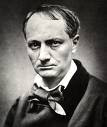On the title page of my Penguin Classics edition of The Confidence Man, an earlier reader, who might not have been myself at the time, has scrawled in near-microscopic hand ('Trumpplate,' some pseudonymous Ishmael instructs us to call it) a solid inky block of textual commentary that I, humble profit, with judicious application of urim and thummim (on generous loan from the estates of, respectively, Leon Uris and Ingrid Thulin) have transcribed thus:
Any attentive reader will fast feel the impulse to debark from Melville's faithless Fidele before the whole hole-y hulk descends into the excremental brownness of a Mississippi mud even Bing Crosby wouldn't serenade. The narrator (Melville's masquer's mask) is the novel's ultimate confidence man. His voice, from the very first sentence with its simile as outlandish as Manco Capac on the St. Louis docks, is obviously not to be believed; it's deliberately artificial, funnily far-fetching, a Barnum sideshow fake. But if we are actually to read this novel and not jump ship at the fifth comma, we must grant the voice some measure of, yes, confidence. We irrationally acquiesce in exchange for the dubious pleasures of Melville's text, a text that often works overtime to frustrate any easily acquired readerly pleasure. Melville's 'long con' on the reader in this farewell to fiction (save Billy Budd, that way-gay 'figure in the carpet' gambit the customs man kept safely in his drawers) is a reductio ad absurdum of the con game played by all novelists, from the sublimely brilliant to the ridiculously untalented (e.g., in our contemporary context, from Antonio Lobo Antunes to Dan Brown), all highly proficient at gulling readers into believing, if only for the duration of a sentence or a paragraph, in the validity of their fictional worlds. Their untruths capture our consciousness and we become their willing confederates. But Herman in 1857 has already taken up arms against this confederacy, and there will be no mercy at Appomattox. His march down the Mississippi from St. Louis to the sea leaves ravaged the customary contract between writer and reader. And after such knowledge, what Typees? And a non-rhetorical question: Where did this novel come from? The literary mind grasps at European precursors--Swift's tubtale, Diderot's fatal Jacques, shambolic Shandy, Sancho and the Don--but my weirder mind wants to leap forward in time and make uncanny, even impossible connections. For in The Confidence Man, as in Moby Dick and "The Paradise of Bachelors and the Tartarus of Maids," Melville vaults over Modernism to write a book that anyone who did serious time in a late 20th-century American university English department can't keep himself from describing as a postmodern anti-novel of philosophical anti-foundationalism, illegitimacy in interpretation, and the deconstruction of the subject. (Breath.) It reads like a novel by a writer who has carefully read Derrida's Writing and Difference and Of Grammatology, De Man's Blindness and Insight, some of Richard Rorty's essays, and a decent primer like Madan Sarup's Introductory Guide to Post-Structuralism and Postmodernism. Which is not to say it seems anything like a David Foster Wallace book. No, it's closer to the work of a Colson Whitehead who has been transported back to the very, very bad old days with his 21st-century literary consciousness magically intact. In reality (if such a thing exists outside bindings and blips), the wordy web Herman weaved must have captured Colson, as it captured Junot Diaz when he imagined Oscar Wao and the horrors of Fuku americanus, and as it surely captured Ralph Ellison, whose Invisible Man transmogrifies The Confidence Man's early "black guinea" penny-pitching scene into an electrified carpet covered with coins.
Wednesday, August 30, 2017
Subscribe to:
Post Comments (Atom)










No comments:
Post a Comment